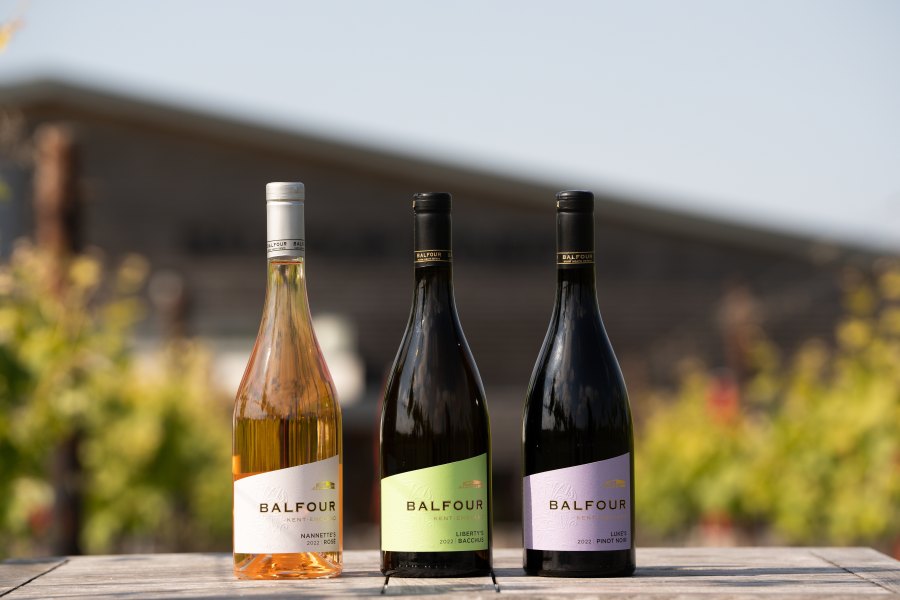Balfour Winery, one of the UK’s most innovative and fastest-growing producers of English wine, has revealed its brand new still wine range for English Wine Week.
Inspired by the producer’s home in the South of England, the collection, which will number six wines in total released throughout 2023, features a new label designed to echo the award-winning architecture of the producer’s winery. There is also the promise of some new grapes and blends, all made with a uniquely English twist.
As one of the biggest producers of still English Wine, Balfour believes that the growing demand for the style marks a shift in perception towards the category. The 21-year-old company is expecting record sales of still wines in 2023 – with Nannette’s Rosé (a pale pink blend of the three main champagne grapes) and Liberty’s Bacchus (a slightly oaked, more sophisticated style of this English staple) predicted to be key sellers.
2023 will also see Balfour open the doors on a brand new £1m extension to their state-of-the-art winery, which will help meet demand for the new still wines, alongside offering new corporate hospitality packages to try to bring London’s boardrooms to Kent’s tranquil vineyards.
The move is all part of a wider focus on showcasing just how great the potential for English Wine’s still category remains – something which winemaker, Fergus Elias, has a particular focus on: “Our new still wine range really shows how far the category has come. These are some of the most rewarding and difficult wines we make – and there’s a tangible growing appreciation and demand for them. We feel a growing confidence that we have all the tools here in England to really fly the flag for our own still wines. Stylistically, they’re unique – taking inspiration both from our own landscape and whilst harvesting the incredible technical expertise we have in the UK.”
On what to look out for in the new Balfour range, Elias added: “Some of the launches we have this year are incredibly exciting, with some first for Balfour from some exciting varieties – we can’t wait to see customer’s reaction. There’s a huge amount of technical detail which goes into their production, which we feel is important for the future of English Wine. The Bacchus alone, for instance, has seen over 10 individual yeast strains, alongside micro-winemaking techniques with lees ageing and selected use of oak. We know we’re far from alone in the industry putting in this level of detail – and that can only be hugely exciting for the English Wine category as a whole.”




